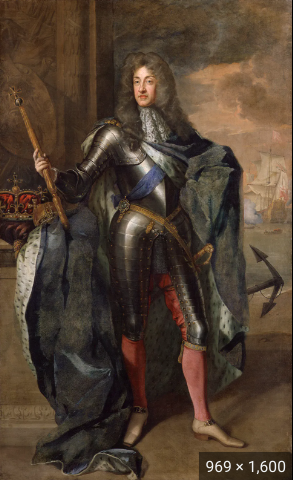The birth of a royal baby boy on the 10th of June 1688 should have brought joy to the three Kingdoms of England, Scotland and Ireland. Instead, the news brought consternation, fear, and despair to those whose hopes for a return to a Protestant monarchy were suddenly dashed.
Since the beginning of his reign in April 1685, the staunchly Catholic King James VII & II of England, Ireland and Scotland had begun systematically removing Protestants from positions of power and replacing them with Catholics. From royal appointments to military promotions, James had sought to bring balance between the two major religious factors in Britain following a long period during which Catholics had been persecuted and often unfairly blamed for the ills which befell the country. The problem was that only some 2% of the population at the time were actually Catholic, and for many Protestants, a quick glance across the Channel showed them that absolute monarchy and arbitrary government were very much a risk of accepting growing Catholic power within the establishments.
However, living within memory of the bloody and widespread English Civil War (otherwise known as the War of the Three Kingdoms) and the disastrous interregnum which was ruled over by the iron fist of Oliver Cromwell, many Protestants were reluctant to rock the boat for fear of a descent into further chaos. Their logic was sound. When James died, his daughter Mary, a staunch Protestant who was married to another steadfast protestant, William Henry, Prince of Orange, would ascend the throne – thus Great Britain would once again be saved from the Papists and returned to what was considered by many to be the reliable governance of good Protestant men.

The unexpected birth of James Francis Edward Stuart burst this bubble with dramatic fashion. Dismissing the fears of his closest advisors and their advice to announce the new Prince of Wales would be Protestant, his father had him baptised as a Catholic. From across the North Sea William had been watching carefully as events unfolded in England. His greatest fear was that James would throw his armies into Europe on the side of the Catholic French King Louis XIV (whose expansion William was striving to control). However, William received a secret letter from the ‘Immortal Seven’ – seven men of high standing and great influence in England – begging him to come to England’s rescue.
Refusing to believe that William would invade, James’ response was somewhat lacking in substance. Even when William’s first invasion force was blown back to Holland by gales, James did little to appease his critics and avert disaster. It was not until November 5th, when William’s great fleet of over 15,000 Dutch, Swiss and German soldiers sailed into Torbay that James took notice. Notice, but no action. William spent weeks in Exeter gathering supplies, horses and reconnaissance, until finally James moved to meet him with an army of some 35,000 men. What should have been an easy victory for James turned into a humiliating retreat, with his other son-in-law, the Prince of Denmark, and his youngest daughter Anne joining a steady stream of detractors who melted away when it became clear that James would make no concessions or reverse any of the pro-Catholic policies which he had introduced in recent months.
James took the only real option left to him. He fled. First to Whitehall, where he was encouraged to flee to Scotland and secure it for his own. This advice he ignored, opting instead to take a ship to France. James’s luck remained unchanged, and his ship ran aground off the Kentish coast. His ignominious return to London, and subsequent efforts to engage William in parley fell on deaf ears. He was arrested, subsequently escaped, and on Christmas morning 1688 he landed in France, where he would set up his exiled court and begin the political engineering required to garner enough foreign support to allow him to win back his crown(s).
This episode of history is known as the ‘Glorious Revolution’ due to the fact that no battles took place and no blood was spilled in the transfer of power from James to Mary and William. At least, not in England, but in Scotland and Ireland the story was soon to be quite different. The era of the Jacobite Risings had begun.
Experience your own private tour of Scotland on our Jacobite Fortresses and Battlefields tour
Author: Craig McDonald
